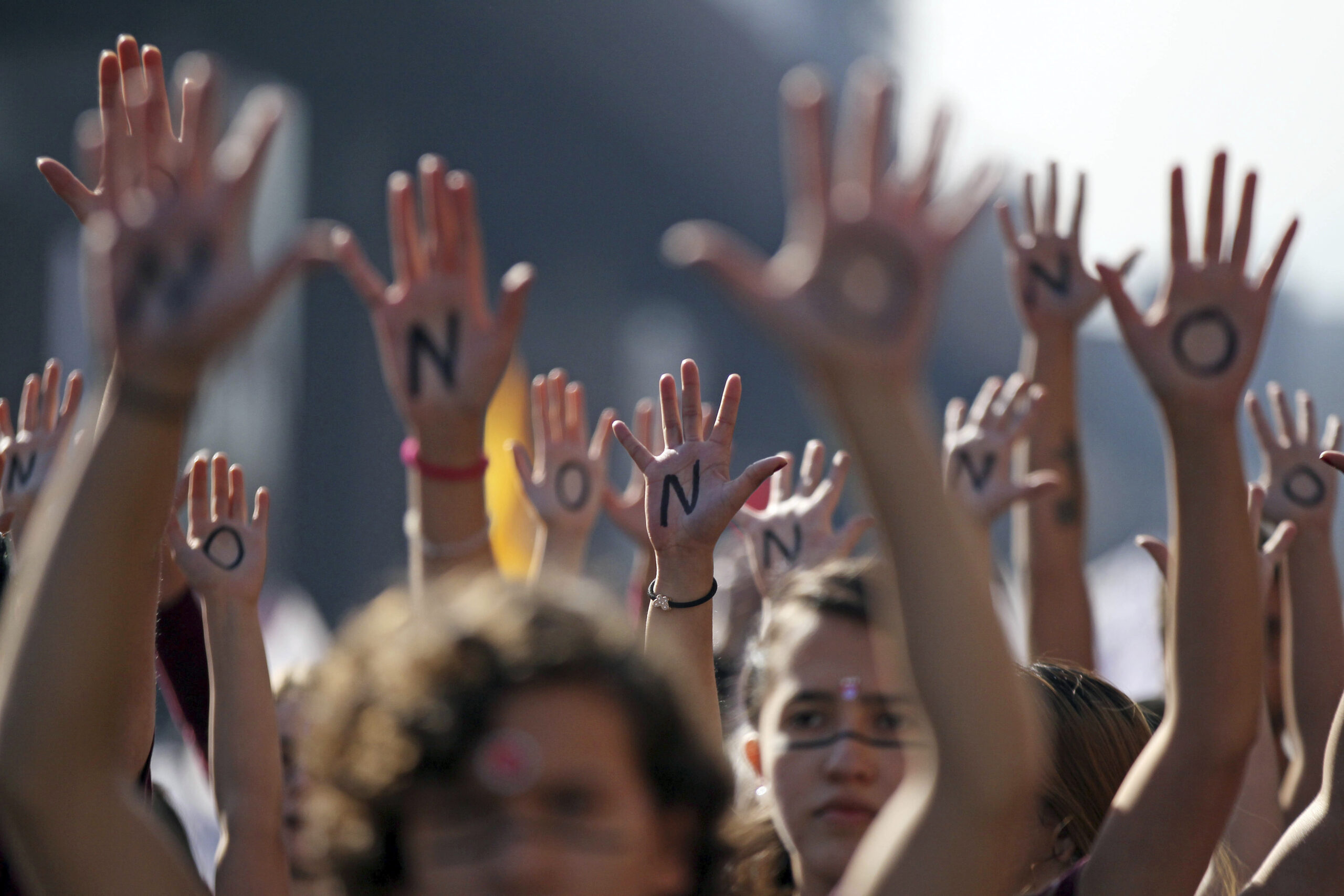
A group of women hold up their arms, showing the words "NO" printed on their palms, during a protest march demanding non-sexist education and an end to discrimination, harassment and sexual abuse by academics, students and officials in Santiago, Chile, Wednesday, June 6, 2018. Photo by Luis Hidalgo/AP Photo
There are few forces of nature more formidable than a group of women fed up with the status quo. From the French Revolution—which was sparked in part by a 7,000-woman march from Paris to Versailles—to Black Lives Matter—which was founded by three women—some of the most important protest movements in global history have been women-led. In addition to organizing many of summer 2020’s continuing marches, over the past century women have taken to the streets to rally for voting and equal rights, to condemn sexual and gun violence, and to stand against the sitting president. But protest has taken other forms too, including the #MeToo movement, anti-colonial mobilizations from Ethiopia to Southeast Asia, women taking the wheel in Saudi Arabia to demand the right to drive, and boycotts and strikes like the Women’s Political Council Montgomery bus boycott. How have women risen up collectively to create change—and influenced broader movements in the process? What has made women particularly effective protesters, and what ideas have women come up with that have changed the art of protest?
USC labor historian Francille Rusan Wilson, Northeastern University feminist sociologist Valentine Moghadam, and UCLA gender studies professor Ju Hui Judy Han visit Zócalo to discuss the power of women saying “no” throughout history.
—
One hundred years after the passage of the 19th Amendment, Zócalo and the Natural History Museum of Los Angeles County present When Women Vote, a three-event series that begins with “How Have Women’s Protests Changed History?” The series continues with:
Why Don’t Women’s Votes Put More Women in Power?
Wednesday, September 16, 2020 – 6:00 PM PDT
What Are Today’s L.A. Women Fighting For?
Thursday, December 3, 2020 – 6:00 PM PDT
Register to receive updates for all events in the series.
The Takeaway
The Enduring Power of Women’s Protests
Women-Led Movements Have Found Strength in Solidarity Across Centuries and Borders
Whether it’s the mothers and grandmothers of the Plaza de Mayo, whose work helped delegitimize the military dictatorship that ruled Argentina between 1976 and 1983, or the ongoing weekly rallies …






